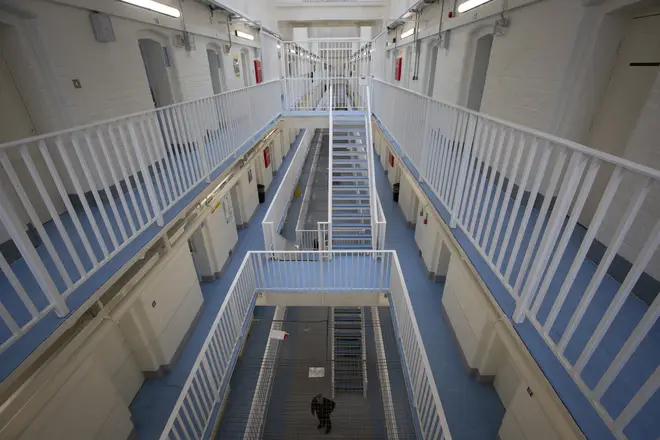
Simon Marks 4pm - 7pm
27 November 2020, 14:48

There is a largely forgotten crisis in Britain’s prisons, which have faced strict lockdowns due to coronavirus.
The harsh rules have meant that family visits have completely stopped, and many families haven’t seen their loved ones for months.
As the first wave broke out, there were very real fears about virus outbreaks within the prison estate.
Prison conditions, with many people in cramped conditions under one roof, are almost perfectly designed hotspots for transmission.
Understandably therefore, the authorities were cautious, and imposed draconian restrictions. Prisoners often spent 23 hours a day confined to their cells, and visits were banned across the country.
To date, the measures have been effective. They have been largely successful in preventing outbreaks. But there are consequences.
In some cases, children have been kept from their parents.
LBC spoke to one woman, on condition of anonymity, who hasn’t seen her partner in person for nearly 8 months, since the first lockdown began.
She told us: “It’s been heartbreaking. We’ve managed to keep conversation going on phone calls, which are limited, and emails and letters but it’s not the same. He’s had several bereavements over the last few months and I haven’t been able to comfort him at all. I miss him and I just don’t know when I’ll be able to give him a hug again.”
In the vast majority of prisons, but not quite all, video calls have been introduced to try and make up for the lack of visiting. But families say they are a poor substitute.
One woman said: “We can’t choose the time or day. They’re 30 minutes a month, and it’s very frustrating because it cuts out all the time. Normally when we’ve finished a call, I end up feeling very deflated. Both of us are left feeling pretty horrendous.”
For those who may struggle to sympathise with the plight of prisoners, Andy Keen Downs, chief executive of the Prison Advice and Care Trust said there were good public safety arguments for allowing access to families: “When you keep families together you reduce the risk of reoffending by 40%, which is huge. If we want a safer society, we must keep families together.”
Mr Keen Downs says that the Prison Service accept that, and he praised their attempts to permit visits at 110 prisons in the summer. But it wasn’t a huge success.
“Families had to maintain a 2-metre distance, they had to wear facemasks, and the number of people visiting dropped to about 20% of normal. Then of course it all got shut down again. And at the moment it’s horrendous for families, so it can’t go on.”
Prisons have now eased some of the earlier restrictions. Prisoners now spend more time outside of their cells. Many have been given extra phone credit to help them stay in touch with family and friends.
But campaigners and families alike say more needs to be done. They would like to see a rollout of rapid testing, as has been offered to the relatives of care home residents in similar situations, or for prisoners to be offered a place on the priority list for vaccines, since they are a vulnerable population.
A Prison Service spokesperson said in a statement: “We understand the importance of maintaining family ties, which is why we quickly rolled out video technology.
“Visits were reinstated at almost all prisons by July but it is only right we are led by public health advice and protect the lives of those who live and work in our jails.”